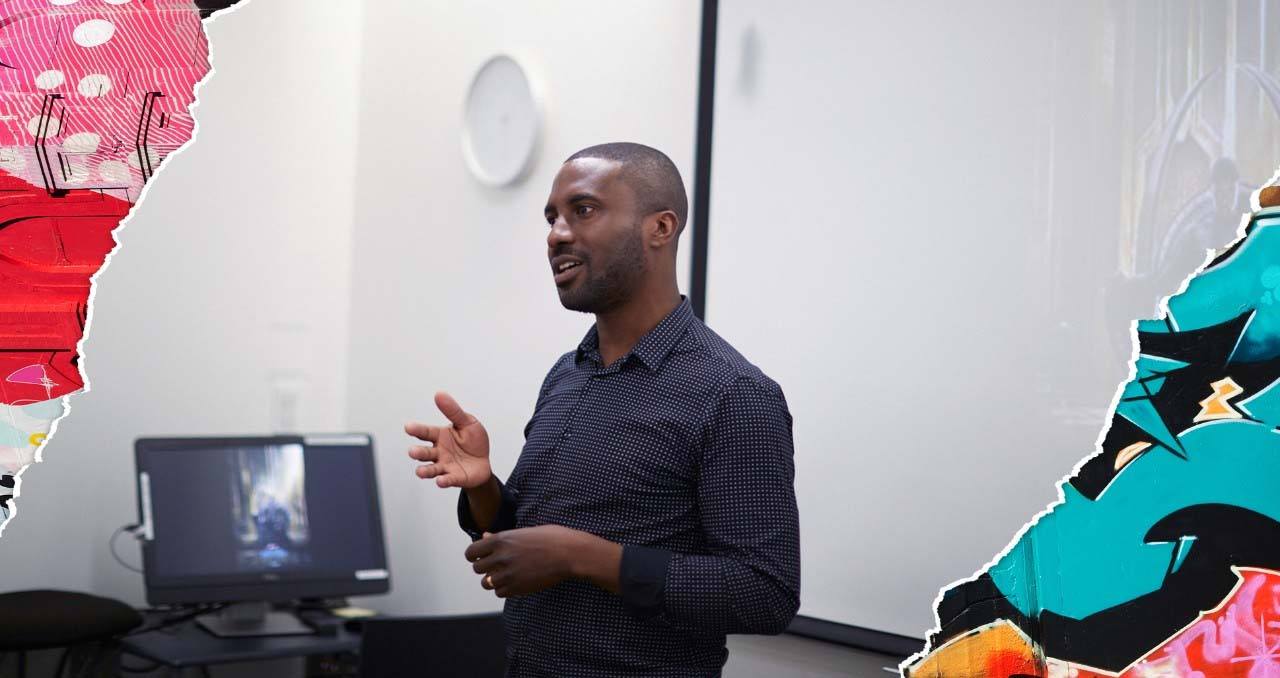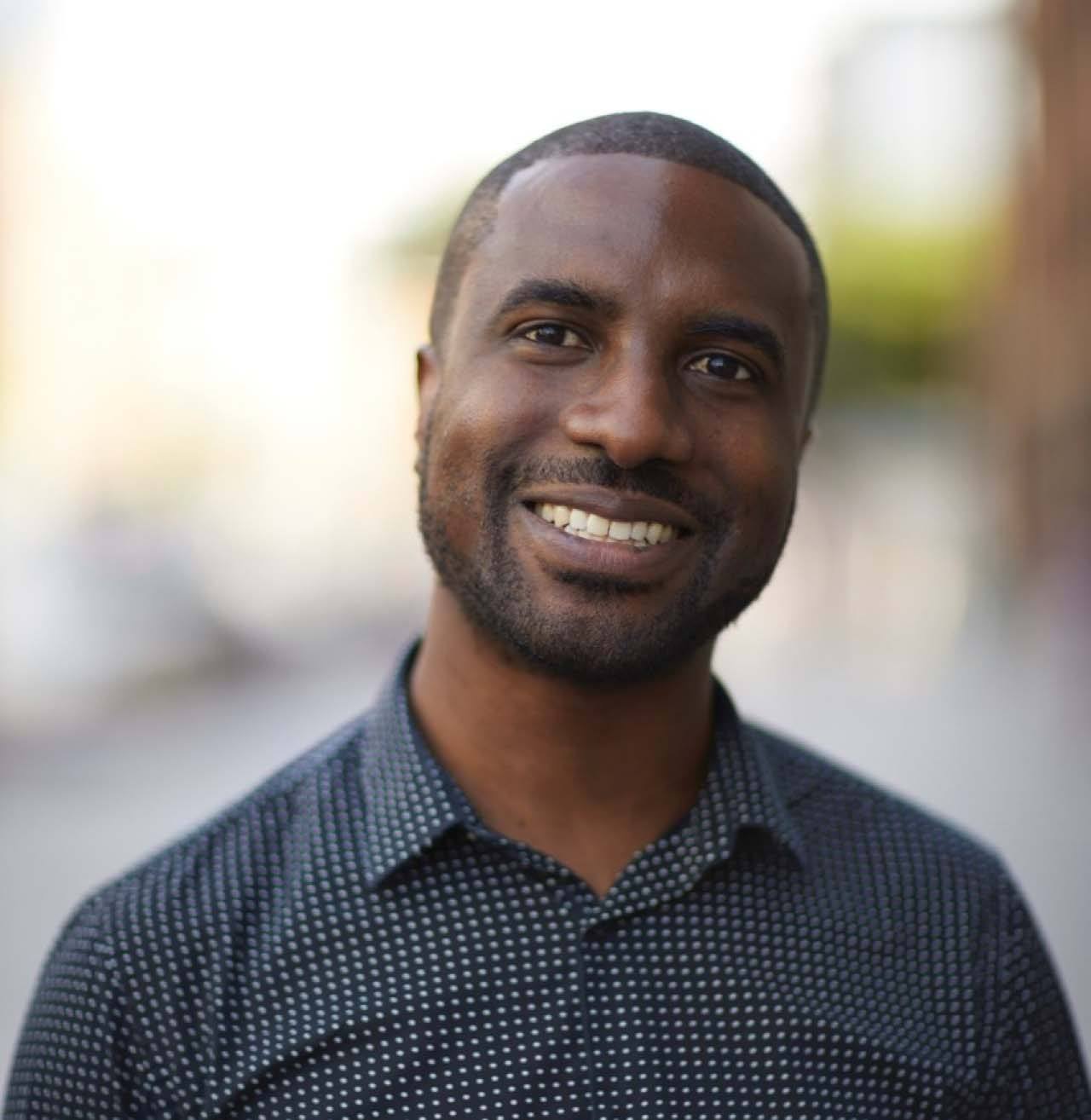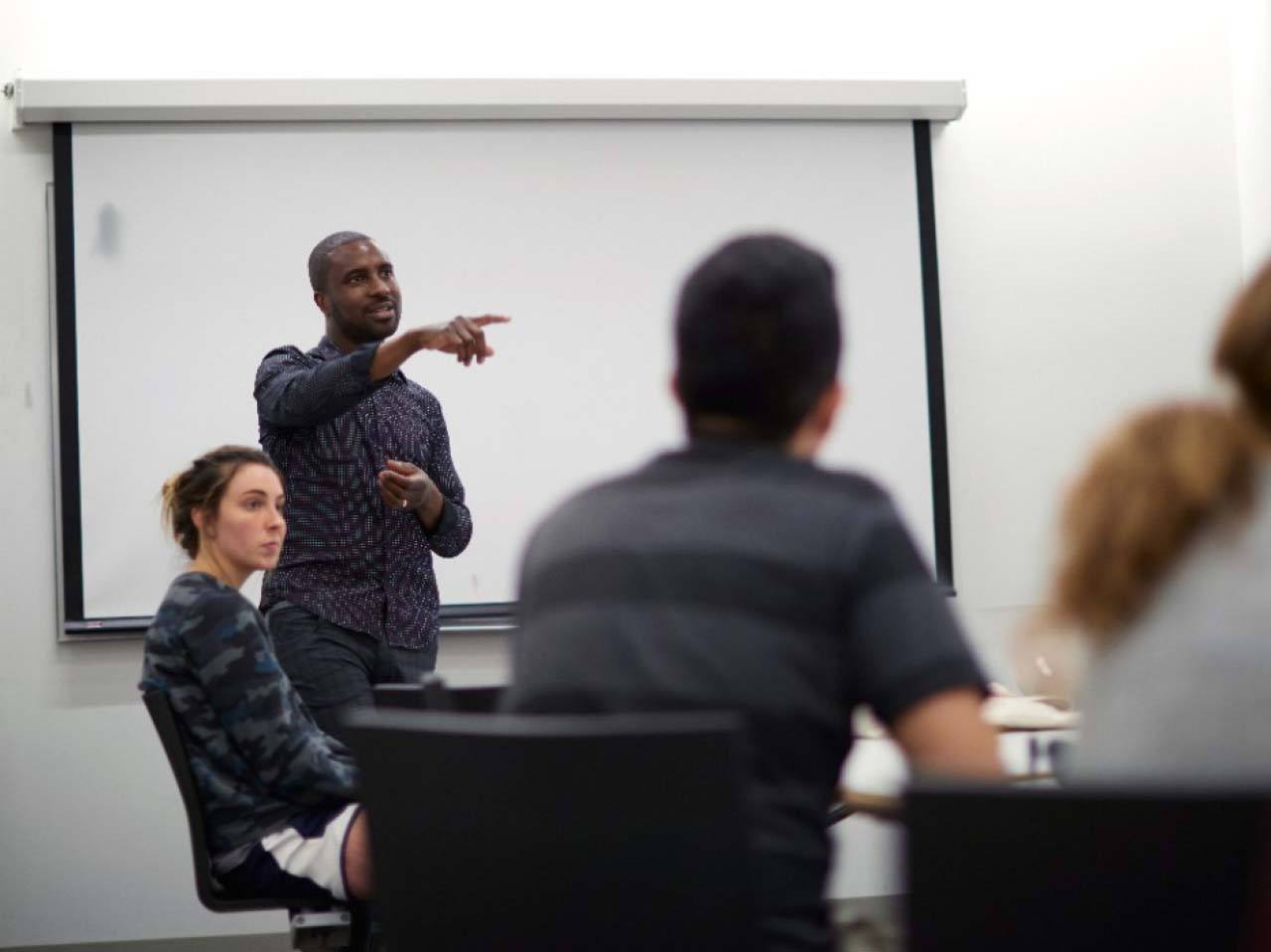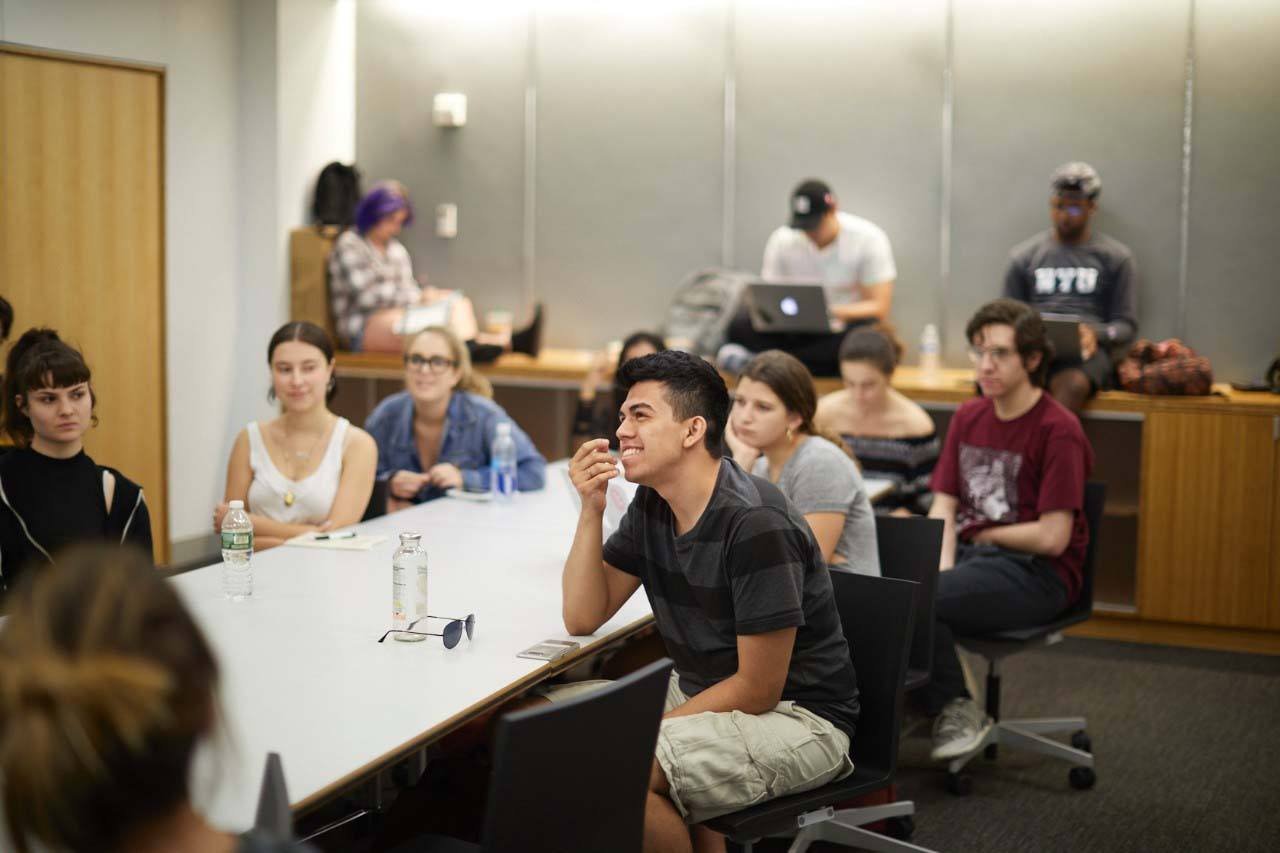
When Michael Ralph teaches his popular course Hip-Hop and Politics, he often thinks about the value of peoples’ creativity—and how that creativity isn’t always valued in the same way. “Hip-hop as a genre used to be seen as pure noise, not even music, and it still suffers from all forms of derogatory and pejorative perceptions,” Ralph says. “Many people, especially racial minorities and young people, are facing an uphill battle in helping the world appreciate their artistic and intellectual sensibilities, and that’s particularly true in the world of hip-hop.”
Ralph values human beings’ creative efforts, but to properly understand them, he draws from a mixed bag of disciplines, cultural lenses, and personal experiences. In other words, he uses his skills as an anthropologist. “To me, anthropology meant I could study anything I wanted,” says Ralph, an associate professor of Social and Cultural Analysis at the College of Arts and Science. His research is proof: Ralph has been studying what connects us despite our cultural differences in the age of globalization as well as lecturing on everything from comparative economics to traditional healing techniques. More importantly, he’s taught his students how to be free and imaginative thinkers, proving there are no limits to an interdisciplinary education.

Despite a love for bridging different ideas, Ralph didn’t start out in anthropology. In college, he initially majored in Computer Science because people convinced him it was a practical choice. After taking one course, though, he hated it. “It turned out I never asked myself what I really loved to do,” says Ralph. He tried Africana Studies instead, and the adjustment would inspire a lifelong drive to examine the contemporary human condition and the psychology behind what makes people do what they do. “I discovered I wanted to do research on indigenous peoples in Africa. More than that, I wanted to study how your cultural orientation shapes your life and your view of the world. That’s how I knew I wanted to become an anthropologist.”
Ralph finished college as an Africana Studies major and then enrolled in the University of Chicago’s PhD program in anthropology. The program allowed him to intensify his ethnographic research on Africa by traveling to Senegal. “I wanted to focus on the lives of disenfranchised young people living in Senegal,” says Ralph. “Young people are always dynamic, always experimenting with notions of how society can be constructed beyond the status quo. There’s also a high rate of youth unemployment in Senegal, and I wanted to learn more about how young people cope with the lack of viable employment options and social support.”
Ralph has continued to study citizenship and Senegalese culture since his initial visit. But his research goals have expanded. It isn’t just the social patterns of Senegalese youth that pique his interest—it’s how new generations on both sides of the Atlantic respond to both history and contemporary crises. He’s been able to explore these fields with increasing depth as a member of NYU’s Department of Social and Cultural Analysis.

When Ralph came to NYU in 2007, he encountered an environment unlike any other he’d experienced. His students came from different backgrounds and had many passions, and his fellow faculty members were compelling thinkers and dedicated mentors. Ralph felt fortunate, but he also wanted to create a collaborative environment in which students, faculty, and even different departments could share their knowledge across disciplines.
One way Ralph’s accomplished this is through his course Hip-Hop and Politics. Offered to undergraduates and precollege students, the course is a critical examination of the ways in which music, media, and contemporary black politics intersect in the aftermath of 60s-era social movements in the United States. It’s a popular course, one that brings Economics majors, aspiring social workers, and even part-time DJs into dialogue about the intellectualism of hip-hop.
With such a diverse array of disciplines in class, Ralph notices something different about his subject matter every year—something that evolves alongside changing cultural norms. For example, “A decade ago, the discourse around hip-hop and sexuality was homophobic,” Ralph says. “But now, hip-hop is defined by its gender fluidity. I find that we can have a really sophisticated discussion of how notions of masculinity, femininity, and gender identity have changed in the music in my students’ lifetimes.”
By exploring topics like these, Ralph hopes to inspire his students to tease out hip-hop’s merits from a variety of angles. They’ll listen to landmark albums like Public Enemy’s Fear of a Black Planet, deconstruct messages from music videos, and consider the conflicts between previous generations of black activists and the current “hip-hop generation.” All the while, students see how hip-hop, however underestimated by critics, has fundamentally shaped the political economy of race in the United States.

As an interdisciplinary thinker, Ralph’s goal as a professor is to show students how to be compelling and creative thinkers, how to speak to every audience, and how to engage the communities around them with a keen eye and a listening ear. “I have a lot of appreciation for humans as artistic and intellectual beings,” he says. “That’s why I push my students to pursue anything they choose, and I hope that NYU can be the robust, transformative space that embraces their pursuits, too.”
In the coming years, Michael Ralph has a number of projects on his plate. He’s writing a manuscript on the origins of life insurance in the aftermath of the Civil War as well as one on the first American private prison systems. But all of his work seems to return to a central set of questions: What determines how much a life is worth? How does your cultural background shape your experience? And how do those experiences shape the broader social landscape? These questions have always guided Ralph’s ambitions.
By investigating the human condition alongside current events, Ralph creates work that is relevant, layered, and multidimensional. But he also brings together various peoples, ideas, and traditions into new kinds of communities, from Senegal to black politics in music. It’s both an approach to studying anthropology and a vision for how scholars can share and grow. Ralph explains, “As NYU continues to evolve, I hope we can create a seamless integration between the social sciences, arts, sciences, technology, and humanities. And as scholars, scientists, and students, I believe we can help transform the world around us while doing the dynamic work we truly love.”
